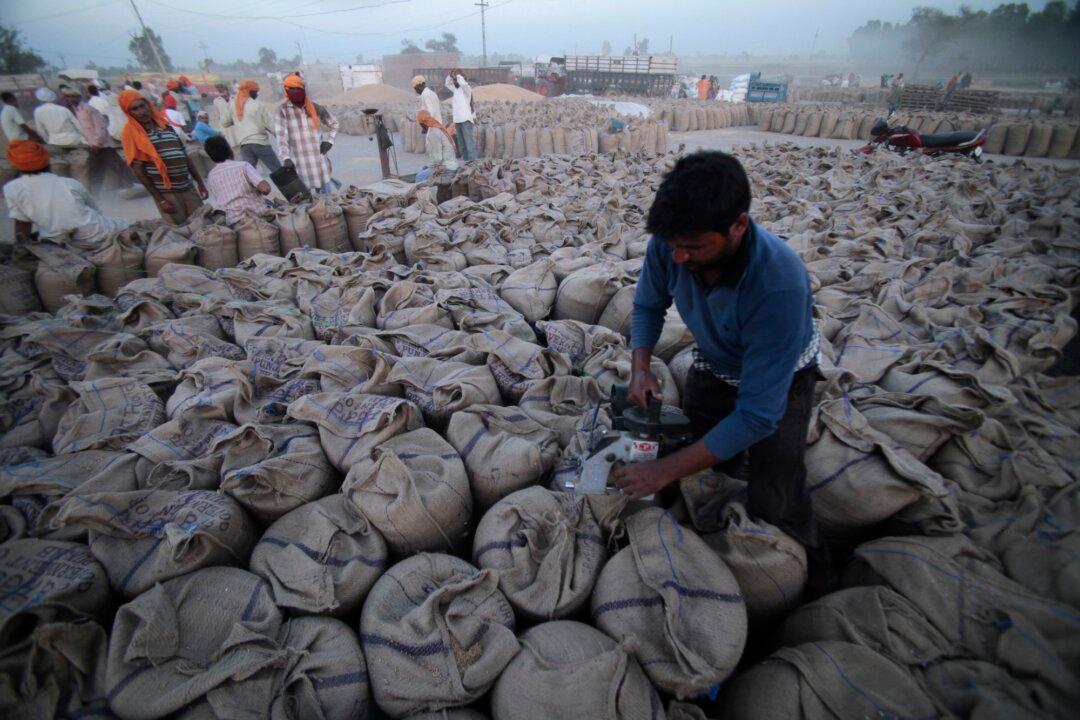India has banned wheat exports, citing heightened risk to food security in the country and some of its neighbors arising from a sudden spike in the global prices of wheat.
The move seeks to address the difficulty India and other vulnerable developing countries are having in accessing adequate wheat supplies, India’s Directorate of Foreign Trade said in a government publication (pdf) on May 13.





